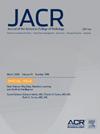全球卫生诊所的大型语言模型:机遇与挑战。
IF 5.1
3区 医学
Q1 RADIOLOGY, NUCLEAR MEDICINE & MEDICAL IMAGING
引用次数: 0
摘要
大型语言模型(llm)已经成为人工智能的新浪潮,它们的应用可能成为重塑医疗保健沟通、研究和知情决策过程的关键资源。这些模式提供了前所未有的潜力,可以迅速传播重要的卫生信息,并超越语言障碍。然而,将它们整合到医疗保健系统中带来了巨大的挑战,包括训练数据的固有偏见、隐私漏洞和数字素养的差异。尽管存在这些障碍,法学硕士拥有无与伦比的分析能力,为循证医疗保健政策和临床实践提供信息。要应对这些挑战,就必须制定强有力的道德框架、减少偏见战略和教育举措,以确保在全球公平获得保健资源。通过对这些复杂性的细致关注和远见卓见,法学硕士有望在全球健康成果方面取得实质性进展,促进健康公平,改善全球人口健康。本文章由计算机程序翻译,如有差异,请以英文原文为准。
Large Language Models for Global Health Clinics: Opportunities and Challenges
Large language models (LLMs) have emerged as a new wave of artificial intelligence, and their applications could emerge as a pivotal resource capable of reshaping health care communication, research, and informed decision-making processes. These models offer unprecedented potential to swiftly disseminate critical health information and transcend linguistic barriers. However, their integration into health care systems presents formidable challenges, including inherent biases in training data, privacy vulnerabilities, and disparities in digital literacy. Despite these obstacles, LLMs possess unparalleled analytic prowess to inform evidence-based health care policies and clinical practices. Addressing these challenges necessitates the formulation of robust ethical frameworks, bias mitigation strategies, and educational initiatives to ensure equitable access to health care resources globally. By navigating these complexities with meticulous attention and foresight, LLMs stand poised to catalyze substantial advancements in global health outcomes, promoting health equity and improving population health worldwide.
求助全文
通过发布文献求助,成功后即可免费获取论文全文。
去求助
来源期刊

Journal of the American College of Radiology
RADIOLOGY, NUCLEAR MEDICINE & MEDICAL IMAGING-
CiteScore
6.30
自引率
8.90%
发文量
312
审稿时长
34 days
期刊介绍:
The official journal of the American College of Radiology, JACR informs its readers of timely, pertinent, and important topics affecting the practice of diagnostic radiologists, interventional radiologists, medical physicists, and radiation oncologists. In so doing, JACR improves their practices and helps optimize their role in the health care system. By providing a forum for informative, well-written articles on health policy, clinical practice, practice management, data science, and education, JACR engages readers in a dialogue that ultimately benefits patient care.
 求助内容:
求助内容: 应助结果提醒方式:
应助结果提醒方式:


